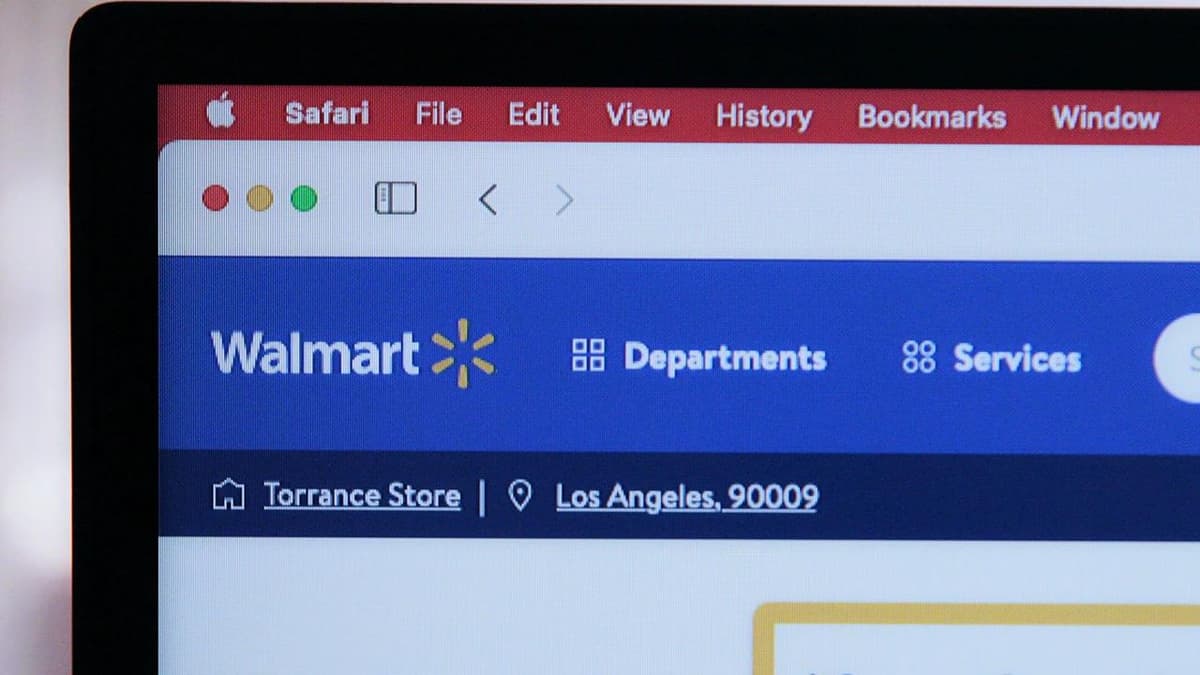How to Do Business in Indonesia: A Complete Guide for Foreign Companies
Indonesia, with its thriving economy and strategic geographical location at the crossroads of Asia, offers immense potential for foreign companies eager to broaden their horizons and expand their business operations. This dynamic archipelago boasts a burgeoning middle class, a youthful demographic, and a robust consumer base of over 270 million people, making it an enticing prospect for companies looking to tap into its vast market.
Nevertheless, entering the Indonesian market and navigating its unique business landscape can be a complex and challenging task. The nation's diverse cultures, languages, and regulatory intricacies can pose significant hurdles for those unfamiliar with its nuances. Additionally, the competition is fierce across various industries, demanding a strategic approach to establish a solid foothold.
In this comprehensive guide, we will equip you with all the essential information and strategic steps required to successfully do business in Indonesia. Whether you are a seasoned multinational corporation or a budding entrepreneur, our goal is to provide you with the knowledge and insights needed to not only enter the Indonesian market but also thrive and grow within it. From understanding the regulatory framework to embracing local customs, this guide will serve as your invaluable companion on your journey to business success in Indonesia.
Table of Contents
- Introduction
- Understanding Indonesian Business Culture
- Legal Considerations
- Banking and Finance
- Employing Workers
- Market Entry Strategies
- Intellectual Property Rights
- Doing Business with the Government
- Business Etiquette and Relationship Building
- Conclusion
- References
1. Introduction - Business Expansion in Indonesia
Indonesia, the largest economy in Southeast Asia, offers a multitude of opportunities for foreign companies looking to expand their operations and access a vast consumer market consisting of over 270 million people. Nevertheless, the path to success in the Indonesian market is paved with challenges, necessitating a deep understanding and adept adaptation to the local business customs, legal framework, and cultural nuances. This comprehensive guide aims to serve as an invaluable resource for businesses seeking to establish a strong presence and ensure sustainable success in Indonesia.
2. Understanding Indonesian Business Culture
In the diverse and vibrant tapestry of Indonesia's business landscape, cultural nuances play a pivotal role in establishing fruitful and enduring partnerships. Before delving into the intricacies of legal and practical aspects, it is paramount to gain insight into the intricate fabric of Indonesian business culture.
Indonesia is a nation where interpersonal relationships are the bedrock of commerce. Trust and connection are the keystones upon which successful business dealings are built. To navigate this landscape effectively, one must recognize the centrality of "jaringan," or network, in Indonesian business culture. This network extends far beyond the transactional realm, encompassing personal connections and mutual trust that often stretch back for generations.
In this context, face-to-face meetings take on a profound significance. They are not just a formality but a tangible expression of commitment and respect. It is highly recommended to invest time in cultivating personal connections with potential business partners or clients. These meetings may initially prioritize relationship-building over immediate discussions of business matters. Patience and a long-term perspective are invaluable virtues when navigating the Indonesian business world.
By taking the time to understand and embrace the importance of interpersonal bonds and trust-building, you will be well-equipped to forge enduring and mutually beneficial partnerships on your journey to success in Indonesia.
3. Legal Considerations
3.1 Registering a Company in Indonesia
Establishing a legal presence in Indonesia is a strategic move for foreign companies seeking to access the vibrant Southeast Asian market. Indonesia offers several legal entity options to accommodate foreign investors, with the Foreign Direct Investment (FDI) Limited Liability Company (PT PMA) standing out as the most popular choice due to its flexibility and the breadth of commercial activities it permits.
Navigating the company registration process in Indonesia involves a series of structured steps:
-
- Name Reservation: The journey begins with selecting and registering your desired company name. This pivotal step necessitates adherence to Indonesian Company Law and regulations, ensuring that your chosen name is both distinctive and in compliance with the country's legal framework.
-
- Deed of Establishment: Crafting the Deed of Establishment is the next crucial milestone. This document serves as the foundational blueprint of your company, outlining the articles of association, shareholder list, and investment plan. It's a comprehensive legal document that lays the groundwork for your business operations.
-
- Domicile Certificate: Every business requires a registered address. To formalize this, you must apply for a Domicile Certificate from local authorities. This certificate validates the location of your business operations, confirming its legal existence within the jurisdiction.
-
- Tax Registration: Integration into the Indonesian tax system is mandatory. Obtain a tax registration number (NPWP) from the Indonesian Tax Office. This number is essential for fulfilling your tax obligations and maintaining compliance with the country's tax laws.
-
- Business ID Number: The Online Single Submission (OSS) system plays a pivotal role in this step. Here, you will secure a Business Identification Number (NIB), a single, unified identifier that simplifies the process of obtaining licenses and permits for your business. The NIB streamlines bureaucratic procedures and is an essential asset in your company's compliance toolkit.
-
- Other Certifications and Authorizations: Depending on your specific industry and business activities, you may need to acquire additional certifications or authorizations. These could encompass sector-specific licenses, health and safety certifications, or environmental permits, among others.
-
- Work Visas: If your business intends to employ foreign workers, you'll need to navigate the work visa application process. Ensuring the correct visas are in place is crucial to avoid any legal complications in your company's workforce.
Given the intricacies of the registration process and the importance of adherence to Indonesian laws and regulations, it is highly advisable to seek professional guidance and assistance from local legal and business consultancy firms. Their expertise can be invaluable in streamlining the process, mitigating potential challenges, and ensuring that your company operates in full compliance with Indonesian law. By carefully navigating these steps, foreign companies can establish a secure and legally sound foothold in the Indonesian market, setting the stage for long-term success.
3.2 Foreign Ownership Restrictions in Indonesia
Indonesia's open-door policy toward foreign investment is a beacon for international companies seeking new horizons. However, it's essential to note that while Indonesia warmly welcomes foreign investors, certain sectors come with specific restrictions and limitations on foreign ownership. These regulations are delineated in the Negative Investment List (NIL), a comprehensive document that serves as a roadmap for navigating these constraints.
The NIL outlines the sectors where foreign investment is subject to particular conditions, maximum ownership limits, or, in some cases, complete prohibition. Understanding this list is a pivotal step in your investment journey, as non-compliance can result in legal entanglements that may adversely affect your business.
Here's a closer look at how to handle foreign ownership restrictions in Indonesia:
-
1. Thorough Review of the NIL: The first and foremost task is to diligently review the Negative Investment List. It's a dynamic document that evolves over time, reflecting Indonesia's economic priorities and changing global circumstances. By carefully studying the NIL, you can identify whether your industry or business falls under any of the specified categories.
-
2. Industry-Specific Insights: Every sector comes with its own set of regulations and nuances. Some may permit foreign investment up to a certain threshold, while others may mandate joint ventures with local partners. Engaging with a local legal advisor or industry expert is invaluable in gaining a nuanced understanding of how these restrictions apply to your specific situation.
-
3. Compliance Strategies: Once you've identified the restrictions relevant to your industry, it's essential to craft a compliance strategy. This may involve forming strategic partnerships with local entities, adjusting your investment structure, or seeking government approvals where necessary. The goal is to align your investment approach with Indonesian regulations while maximizing your opportunities for success.
-
4. Legal Counsel: In this complex landscape, having local legal counsel is more than just a recommendation; it's a necessity. A skilled legal advisor can provide insights, assist with regulatory compliance, and navigate the intricacies of foreign investment regulations on your behalf.
-
5. Staying Informed: Foreign investment regulations can evolve, and the NIL may be updated periodically. Therefore, it's crucial to stay informed about changes that could impact your business. This proactive approach ensures that your investment remains compliant with the latest regulations.
While Indonesia's embrace of foreign investment is undeniable, foreign ownership restrictions underscore the importance of a well-informed and strategic approach. The Negative Investment List serves as both a guide and a challenge, and successful navigation requires meticulous planning, industry-specific insights, and expert legal counsel. By proactively addressing these restrictions, you can position your business for sustainable growth and success within the Indonesian market.
3.3 Required Permits and Licenses in Indonesia
Embarking on business activities in Indonesia involves threading your way through a complex web of regulations, licenses, and permits. Understanding the intricacies of this process is essential to ensure that your business operates smoothly and legally. Here's an in-depth look at the various permits and licenses you may encounter:
-
1. Business License via OSS System: The cornerstone of your legal business operations in Indonesia is the Business License, obtained through the Online Single Submission (OSS). This license is your golden ticket, authorizing your company to operate within the country's jurisdiction. It simplifies the licensing process by consolidating various permits into a single application, streamlining bureaucracy.
-
2. Industry-Specific Licenses: Indonesia's diverse economy means that specific sectors come with their own set of regulatory requirements. For instance, if you're venturing into healthcare, mining, or manufacturing, you'll likely need industry-specific licenses. These licenses are essential for ensuring compliance with sector-specific regulations, which may encompass safety standards, environmental concerns, or specialized training requirements.
-
3. Import and Export Licenses: If your business involves the import or export of goods, you must secure the necessary licenses from relevant authorities. Importers typically need an [Importer Identification Number (API)](https://www.trade.gov/country-commercial-guides/indonesia-prohibited-and-restricted-imports), while exporters may require an Exporter Identification Number (APE). Additionally, commodity-specific licenses may be necessary for certain goods or products.
-
4. Environmental Permits: Environmental conservation is a paramount concern in Indonesia. Depending on your business activities, you may need environmental permits to ensure that your operations align with the country's environmental regulations. This may involve environmental impact assessments and mitigation plans.
-
5. Construction Permits: If your business involves construction, you'll need construction permits, including Building Permits (IMB). These permits ensure that your construction projects adhere to safety and zoning regulations.
-
6. Food and Health Certifications: If you're in the food or health industry, you'll need certifications to demonstrate that your products meet safety and quality standards. These certifications are vital to gaining consumer trust and complying with health regulations.
-
7. Investment Permits: Foreign investors may need specific investment permits, such as the Investment Registration (Tanda Daftar Penanaman Modal - "TDPM"), depending on the type and scale of investment.
-
8. Labor Permits: If your business involves hiring foreign workers, work permits and visas are essential. The specific permits required may vary depending on the nature of the work and the duration of the employment.
-
9. Intellectual Property Rights: Protecting intellectual property is crucial. Registering trademarks, patents, and copyrights ensures that your business assets are safeguarded and that you have legal recourse in case of infringement.
It's essential to operate legally and avoid potential legal complications. Working closely with local experts, such as legal advisors or consultants well-versed in Indonesian regulations, is highly advisable. They can provide invaluable guidance, streamline the application process, and help ensure that your business complies with all necessary permits and licenses, allowing you to focus on your core operations and long-term success in Indonesia.
4. Banking and Finance
4.1 Opening a Bank Account in Indonesia
Opening a bank account in Indonesia is a crucial step for foreign companies looking to establish a solid financial foundation in the country. The process is generally straightforward and offers flexibility in terms of both local currency (Rupiah) and foreign currency-denominated accounts. Here's a detailed breakdown of what you'll need and what to expect:
1. Company Registration Documents: Before you can embark on the journey of opening a bank account, ensure you have your company's registration documents in order. This typically includes:
-
Deed of Establishment: This document outlines your company's articles of association, shareholders' list, and investment plan. It's a foundational document that serves as the blueprint for your business operations in Indonesia.
-
NPWP: Your tax registration number (NPWP) from the Indonesian Tax Office is essential for tax compliance. This number is a fundamental requirement for financial transactions within Indonesia.
-
NIB: The Business Identification Number (NIB) acquired through the Online Single Submission (OSS) system is your company's single identification number for various licenses and permits. It's a crucial identifier that simplifies your interactions with government entities and financial institutions.
2. Identification Documents: As part of the account opening process, the authorized signatories of your company will need to provide valid identification documents, typically including:
-
Valid Passports: Passport copies are a common requirement. Ensure that they are up to date and include all relevant visas for your stay in Indonesia.
-
Identity Cards: Some banks may require identity cards (KTP - Kartu Tanda Penduduk) for individuals involved in the account management.
3. Proof of Address: Demonstrating that your company has a registered address is a necessary step. Typically, this involves providing:
-
Utility Bills: Recent utility bills, such as electricity or water bills, in the company's name, showing the registered address.
-
Lease Agreement: If your company rents its premises, a lease agreement confirming the address can serve as proof of residence.
While the process itself is relatively straightforward, it's essential to note that specific requirements may vary from one bank to another. Therefore, it's advisable to contact the bank you intend to open an account with and confirm their specific document requirements and procedures in advance.
Once you've gathered all the necessary documents and met the bank's requirements, you can proceed with opening your bank account. The bank will provide you with the account details and may offer additional services tailored to your company's financial needs, such as online banking, corporate credit cards, or foreign currency accounts.
Establishing a local bank account in Indonesia not only facilitates your financial transactions but also demonstrates your commitment to conducting business in the country. It's a crucial step towards seamless operations and financial compliance, ensuring that your company can thrive in the Indonesian market.
4.2 Foreign Exchange Regulations in Indonesia
Indonesia's foreign exchange regulations are a critical aspect of conducting international business within the country. These regulations aim to maintain financial stability, protect the local currency (Rupiah), and ensure transparent and accountable foreign currency transactions. Here's a detailed exploration of what foreign companies need to know about these regulations:
-
1. Authorized Banks: Foreign currency transactions in Indonesia must be conducted through authorized banks. These banks are licensed and regulated by Bank Indonesia, the country's central bank. Authorized banks act as intermediaries for foreign currency transactions and play a vital role in ensuring compliance with the regulatory framework.
-
2. Reporting Requirements: Companies engaging in foreign currency transactions are typically required to report certain transactions to Bank Indonesia. These reports help the authorities monitor the flow of foreign currency in and out of the country, contributing to overall financial stability. Compliance with reporting requirements is crucial to avoid potential legal complications.
-
3. Repatriation of Profits: If your company generates profits in Indonesia and wishes to repatriate those earnings abroad, you must follow a structured process. This often involves providing supporting documents, such as invoices or certificates of income tax payment, to demonstrate that the income is legitimate and compliant with Indonesian tax regulations.
-
4. Currency Exchange: Foreign currency exchange in Indonesia is regulated, and exchange rates may be subject to fluctuations. It's essential to stay informed about current rates and utilize authorized banks or exchange services to conduct currency exchange transactions.
-
5. Local Financial Advisors: To navigate the intricacies of foreign exchange regulations in Indonesia, it's highly advisable to engage with local financial advisors or banks familiar with the regulatory landscape. They can provide expert guidance, ensure compliance with reporting requirements, and facilitate the smooth flow of funds for your business.
-
6. Currency Controls: Be aware that Indonesia has implemented certain currency controls to manage its foreign exchange reserves. These controls may include restrictions on the amount of foreign currency that can be held in domestic bank accounts. Staying informed about these controls and their implications for your business is crucial.
-
7. Risk Management: Given the potential volatility of foreign exchange rates, consider implementing risk management strategies, such as hedging, to protect your company from adverse currency fluctuations. These strategies can help mitigate financial risks associated with foreign exchange transactions.
Navigating foreign exchange regulations is integral to conducting international business in Indonesia. By adhering to these regulations, you not only ensure compliance with the law but also contribute to the stability and transparency of the country's financial system. Partnering with local financial experts who understand the nuances of Indonesian foreign exchange regulations can be instrumental in facilitating your company's financial transactions and success within the Indonesian market.
4.3 Taxation in Indonesia
Indonesia's taxation system is a critical aspect of doing business in the country, and understanding and complying with tax regulations are paramount for foreign companies. Here's a comprehensive exploration of the key tax considerations:
-
1. Corporate Income Tax (CIT): Companies operating in Indonesia are subject to corporate income tax, which is levied at a standard rate of 25% on their net income. It's crucial to maintain accurate financial records and ensure timely filing and payment of CIT to remain compliant with Indonesian tax laws.
-
2. Value Added Tax (VAT): VAT is a significant component of Indonesia's tax system, applying to most goods and services. The standard VAT rate is 10%. Companies must register for VAT if their annual turnover exceeds a specified threshold. Proper invoicing and reporting are essential to manage VAT obligations effectively.
-
3. Withholding Tax: Payments made to non-resident entities, such as interest, dividends, royalties, and certain services, may be subject to withholding tax. The withholding tax rates can vary depending on the nature of the payment and any relevant tax treaties between Indonesia and the foreign entity's home country. It's vital to correctly calculate and remit withholding taxes to avoid penalties.
-
4. Social Security and Payroll Taxes: Employers in Indonesia are obligated to contribute to social security programs for their employees, which encompass healthcare, pensions, and work accident benefits. Additionally, employers must withhold employee income tax from their salaries. Compliance with payroll tax obligations ensures the financial well-being of your employees and maintains your legal standing in Indonesia.
-
5. Tax Planning: Given the complexity of Indonesia's tax laws, tax planning is essential to optimize your company's financial position. Tax-efficient strategies, such as structuring, can help minimize tax liabilities while remaining fully compliant with Indonesian tax regulations.
-
6. Reporting and Compliance: Staying up-to-date with tax reporting requirements is imperative. Ensure that your company maintains accurate financial records, files tax returns promptly, and complies with all tax obligations to prevent potential legal issues.
-
7. Professional Advice: Navigating Indonesia's tax landscape can be challenging, and seeking professional advice is highly advisable. Engaging a local tax advisor or consultant with in-depth knowledge of Indonesian tax laws can provide critical insights, help you identify potential tax incentives, and ensure your company's full compliance with tax regulations.
-
8. Tax Treaties: Indonesia has established tax treaties with numerous countries to prevent double taxation and promote cross-border investment. Understanding these treaties and their implications for your business can be advantageous in optimizing your tax position.
Effectively managing your company's tax obligations in Indonesia is essential for financial stability and legal compliance. By proactively addressing these key tax considerations, you can position your business for success in the Indonesian market while optimizing your financial performance and maintaining a strong standing with local tax authorities.
5. Employing Workers
5.1 Work Permit Maze in Indonesia
Hiring expatriate workers in Indonesia can bring diverse expertise to your company, but it also involves a structured process of obtaining work permits and stay permits (KITAS) in compliance with Indonesian regulations. Here's a comprehensive guide to understanding and navigating the Indonesian work permit landscape:
-
1. Company Sponsorship: The journey begins with the employing company serving as the sponsor for the work permits of its foreign employees. This sponsorship entails legal responsibility for ensuring that the expatriate worker complies with Indonesian laws and regulations.
-
2. Clearance from Manpower Authorities: Before proceeding with the work permit application, the company must obtain clearance from the Ministry of Manpower. This clearance helps to ensure that the company is providing job opportunities for Indonesian citizens as per the government's guidelines.
-
3. Medical Check-ups: As part of the work permit application process, foreign employees are required to undergo medical check-ups at designated hospitals. These medical examinations help ascertain the employee's health status and ensure they meet the required health standards.
-
4. Limited Stay Permit (KITAS): After receiving clearance from the Ministry of Manpower and completing the necessary medical examinations, foreign employees can apply for a Limited Stay Permit (KITAS). The KITAS allows them to legally reside and work in Indonesia for a specified duration, typically in line with the term of their employment contract.
-
5. Extension and Renewal: Work permits, including the KITAS, are usually granted for a specific period. To retain foreign employees, companies must be proactive in managing the renewal and extension of these permits to ensure their continued legal employment in Indonesia.
-
6. Legal Assistance: Given the intricacies and potential complexities of the work permit application process, it's highly advisable to seek professional assistance. Experienced immigration consultants or legal experts can provide invaluable guidance, streamline the application process, and ensure full compliance with Indonesian immigration laws.
-
7. Reporting Obligations: Companies are required to notify the local immigration office if there are any changes in the foreign employee's employment status, such as termination or relocation. Staying compliant with reporting obligations is essential to avoid legal complications.
-
8. Language Proficiency: Depending on the nature of the work and the individual's qualifications, the Indonesian government may require proof of proficiency in the Indonesian language (Bahasa Indonesia) as part of the work permit application.
-
9. Tax Obligations: Companies must also be aware of their tax obligations related to employing expatriate workers. This includes withholding and remitting employee income tax and fulfilling any other tax-related requirements.
5.2 Labor Laws and Regulations in Indonesia
Indonesia's labor laws and regulations form the backbone of the employment landscape, safeguarding the rights and responsibilities of both employers and employees. Understanding and adhering to these laws is essential for a harmonious and legally compliant work environment. Here's a comprehensive exploration of the key aspects:
-
1. Employment Contracts: Written employment contracts in Indonesian are a fundamental requirement for all employees in Indonesia. These contracts outline the terms and conditions of employment, including job responsibilities, working hours, compensation, benefits, and termination procedures. Employers must ensure that these contracts comply with Indonesian labor laws and are provided to employees upon hiring.
-
2. Minimum Wage: Indonesia operates a provincial minimum wage system, with each province setting its own minimum wage. Employers must pay their employees at least the minimum wage for the province in which they operate. Staying current with the minimum wage rates for your specific location is crucial to remain in compliance.
-
3. Working Hours: The standard working week in Indonesia consists of 40 hours, with employees typically working eight hours a day, five days a week. Any time worked beyond this is considered overtime and is subject to specific regulations, including overtime pay.
-
4. Social Security: Employers in Indonesia are obligated to contribute to social security schemes for their employees. These schemes encompass health insurance (BPJS Kesehatan), pensions (BPJS Ketenagakerjaan), and work accident insurance (BPJS Ketenagakerjaan). Compliance with these contributions is vital to provide social protection to your workforce.
-
5. Termination and Severance: Terminating an employee's contract in Indonesia requires adherence to specific procedures outlined in labor laws. Termination must be justified by a valid reason, such as poor performance or misconduct, and must follow due process. Employers may also be obligated to provide severance payments to terminated employees, the amount of which depends on the length of service.
-
6. Labor Unions: Labor unions are prevalent in Indonesia, and employees have the right to join unions and engage in collective bargaining. Employers must respect the rights of employees to organize and participate in union activities.
-
7. Foreign Workers: Companies employing foreign workers in Indonesia must ensure that they possess the necessary work permits (KITAS) and stay permits. Compliance with immigration and labor laws regarding foreign workers is essential to avoid legal complications.
-
8. Discrimination and Harassment: Indonesian labor laws prohibit discrimination and harassment in the workplace based on factors such as gender, religion, race, and disability. Employers must foster a safe and inclusive work environment and address any reported incidents promptly.
-
9. Occupational Health and Safety: Ensuring the health and safety of employees is a priority in Indonesian labor laws. Employers are responsible for providing a safe workplace, implementing safety measures, and complying with health and safety regulations.
5.3 Social Security System in Indonesia
Indonesia's social security system is designed to provide essential safety nets for its citizens, encompassing healthcare, pensions, and protection against work-related accidents. As an employer in Indonesia, it's vital to understand and fulfill your obligations within this comprehensive framework. Here's a comprehensive look at Indonesia's social security system and your role as an employer:
-
1. BPJS Ketenagakerjaan (Employment Social Security Agency): This program covers a range of benefits related to the workforce, including workplace accidents, work-related death benefits, and pensions. Employers are required to contribute to BPJS Ketenagakerjaan on behalf of their employees. These contributions fund various benefits, such as medical care for work-related injuries, disability benefits, and pensions upon retirement.
-
2. BPJS Kesehatan (Health Social Security Agency): BPJS Kesehatan is Indonesia's universal healthcare program, ensuring access to medical services for citizens and residents. As an employer, you are responsible for enrolling both your local and expatriate employees in BPJS Kesehatan and making the necessary contributions to provide them with healthcare coverage. This program plays a crucial role in supporting the health and well-being of your workforce.
-
3. Registration and Contributions: Employers must register their employees with these social security programs upon hiring. Contributions are typically calculated as a percentage of an employee's monthly salary and shared between the employer and the employee. Ensuring accurate registration and timely contributions is essential to maintain compliance with Indonesian social security regulations.
-
4. Reporting Obligations: In addition to contributions, employers are responsible for reporting any workplace accidents or incidents to BPJS Ketenagakerjaan. Promptly reporting these incidents helps ensure that employees receive the necessary medical care and benefits in case of work-related injuries.
-
5. Expatriate Workers: If you employ expatriate workers in Indonesia, you are also responsible for enrolling them in these social security programs, which is a crucial aspect of their legal employment status in the country. Compliance with immigration and labor laws related to foreign workers is essential to avoid legal complications.
-
6. Compliance with Regulations: Staying compliant with the regulations and requirements of both BPJS Ketenagakerjaan and BPJS Kesehatan is essential to fulfill your legal obligations as an employer. Failure to meet these obligations can result in penalties and legal issues.
6. Market Entry Strategies
6.1 Finding Local Partnerships - Unlocking Market Success
In the dynamic landscape of Indonesian business, finding the right local partner can be the key to unlocking your company's success. Collaborating with a local company or individual offers a multitude of advantages and insights that can significantly impact your market entry strategy. Here's a closer look at why finding local partners is a crucial step:
-
1. Cultural Insights and Nuances: Indonesia is a culturally diverse country, with distinct customs and traditions that vary across its many regions. A local partner can provide invaluable cultural insights, helping you understand and respect these nuances. This understanding can be the difference between a business that resonates with the local population and one that struggles to connect.
-
2. Navigating the Local Business Landscape: Indonesia's business environment can be intricate and multifaceted. A local partner brings intimate knowledge of the local business landscape, including regulatory frameworks, market trends, and competitive dynamics. This knowledge is instrumental in making informed decisions and strategic moves.
-
3. Established Networks and Connections: Local partners often come with an extensive network of contacts and connections. This network can open doors, facilitate introductions to potential clients, suppliers, and key stakeholders, and accelerate your market entry process. Building a network from scratch can be time-consuming, but a local partner can provide a head start.
-
4. Regulatory Expertise: Indonesia has specific regulatory requirements and compliance standards that can be challenging for newcomers to navigate. Local partners are well-versed in these regulations and can guide you through the legal aspects of conducting business in Indonesia, helping you avoid potential pitfalls.
-
5. Trust and Credibility: Trust is a cornerstone of business relationships in Indonesia. By partnering with a reputable local entity, you not only gain credibility in the eyes of local stakeholders but also foster trust more quickly. Trust is a currency that can significantly expedite your market entry and business development efforts.
-
6. Risk Mitigation: Entering a new market carries inherent risks. By sharing these risks with a local partner, you can leverage their experience and expertise to mitigate potential challenges and setbacks. A well-chosen local partner can serve as a buffer against unforeseen circumstances.
It's also important to note that not all local partnerships are created equal, and due diligence is essential. Here are some best practices for establishing successful local partnerships in Indonesia:
-
Conduct Thorough Due Diligence : Research potential partners meticulously. Verify their track record, reputation, and financial stability. Look for alignment in values and goals.
-
Establish Clear Agreements: Ensure that the terms of your partnership are well-defined in legally binding agreements. This includes delineating responsibilities, profit-sharing, dispute resolution mechanisms, and exit strategies.
-
Build Mutual Trust: Invest time and effort in building trust and rapport with your local partner. Open and transparent communication is key to nurturing a successful and enduring partnership.
6.2 Indonesia's Diverse Distribution Channels
When venturing into the Indonesian market, one of the critical elements of your market entry strategy is identifying and establishing the most appropriate distribution channels. Indonesia's vast and diverse landscape, comprised of numerous islands and regions, demands a strategic approach to distribution. Here's an in-depth exploration of the considerations and steps involved in selecting the right distribution channels for your products or services:
-
1. Market Research and Segmentation: The first step is comprehensive market research. Understand your target audience, their preferences, and their geographical locations. Indonesia's diverse culture and demographics mean that consumer behavior can vary significantly from one region to another. By segmenting your market and tailoring your distribution channels accordingly, you can optimize your reach and effectiveness.
-
2. Agent-Based Distribution: Utilizing agents can be an efficient way to penetrate the Indonesian market, especially if you are entering a niche or specialized sector. Agents can act as intermediaries, connecting you with local buyers, distributors, or retailers. Ensure that your agents are reputable and well-connected within your industry.
-
3. Distributors and Wholesalers: Distributors and wholesalers can play a pivotal role in your distribution strategy. They have established networks, logistics capabilities, and the infrastructure needed to reach a broader audience. Collaborating with reputable distributors can help you efficiently cover a wide geographical area.
-
4. Direct Distribution: Depending on your industry and product type, you may opt for a direct distribution approach. This could involve establishing your distribution network, opening your retail outlets, or selling directly to consumers through e-commerce platforms. Direct distribution provides you with more control but also comes with higher operational and logistical demands.
-
5. E-commerce and Online Marketplaces: Indonesia's e-commerce market is growing rapidly, making online sales channels increasingly relevant. Partnering with local e-commerce platforms or establishing your online presence can provide a significant reach, especially to tech-savvy urban consumers.
-
6. Local Partnerships: Collaborating with local companies or individuals can enhance your distribution capabilities. Local partners bring market knowledge, connections, and insights that can help streamline your distribution channels and reach a broader audience.
-
7. Logistics and Infrastructure: Indonesia's geographical diversity also means varying levels of infrastructure development. Consider the logistics challenges of reaching remote areas and ensure that your chosen distribution channels can address these challenges efficiently.
-
8. Regulatory Compliance: Be aware of any regulatory requirements or restrictions related to your chosen distribution channels. Some industries may have specific regulations that impact distribution.
-
9. Adaptability and Flexibility: The Indonesian market is dynamic, and consumer preferences can evolve rapidly. Your distribution strategy should be adaptable and flexible to accommodate changes in the market landscape.
-
10. Local Consultation: Engage with local trade associations, consultants, or industry experts. They can provide valuable insights into the local distribution landscape, regulations, and best practices.
7. Your Intellectual Property Rights in Indonesia
Protecting your intellectual property rights (IPR) is a critical concern when expanding your business into Indonesia. While Indonesia has made progress in IPR protection, challenges and risks persist. To secure your intellectual assets effectively in this dynamic market, consider the following essential steps:
7.1. Register IPR with the Indonesian Intellectual Property Office
-
Trademarks: Register your trademarks to safeguard your brand identity. This ensures exclusive rights to use, license, or sell your brand in Indonesia. Registering trademarks can be especially vital in industries where branding is a significant competitive advantage.
-
Patents: If your business relies on innovative technology or products, patent registration is essential. It grants you exclusive rights to your inventions, protecting them from unauthorized use or replication. Be diligent in documenting your inventions and filing for patents promptly.
-
Copyrights: Register your creative works, including literature, music, software, and other intellectual creations, to protect them from unauthorized reproduction or distribution. Copyright registration helps establish your ownership and provides legal recourse in case of infringement.
7.2. Enforce IPR Vigilantly
-
Market Monitoring: Continuously monitor the market for any signs of IPR infringement. This includes unauthorized use of your trademarks, patents, or copyrighted materials. You can employ online monitoring tools and engage third-party services to assist in this endeavor.
-
Take Legal Action: If you identify infringements, take swift and appropriate legal action. Consult with legal experts well-versed in Indonesian IPR laws to determine the best course of action. This may involve issuing cease-and-desist letters, negotiating settlements, or pursuing legal remedies in Indonesian courts.
-
Customs Recordal: Consider recordal with Indonesian customs authorities. This enables them to identify and seize counterfeit or infringing goods at borders, helping protect your IPR and prevent the entry of counterfeit products into the Indonesian market.
7.3. Seek Legal Advice and Local Expertise
-
Local Intellectual Property Experts: Engage local intellectual property experts or law firms experienced in Indonesian IPR laws and regulations. They can provide essential guidance on registration, enforcement, and compliance.
-
Legal Counsel: Retain legal counsel with expertise in international intellectual property protection. An experienced attorney can help you navigate the complexities of Indonesian IPR laws, enforce your rights effectively, and represent your interests in legal proceedings.
-
Due Diligence: Conduct due diligence when engaging with partners, suppliers, or stakeholders in Indonesia. Ensure they respect and protect your intellectual property rights, and include relevant clauses in your contracts to safeguard your interests.
7.4. Stay Informed and Adapt
-
Stay Current: Keep abreast of changes in Indonesian IPR laws and regulations. Be aware of any updates or revisions that may impact your protection strategies.
-
Educate Your Team: Ensure that your employees and partners in Indonesia are well-informed about your IPR policies and the importance of compliance. Training and awareness programs can help prevent inadvertent violations.
8. Doing Business with the Indonesia Government
Engaging in government procurement projects in Indonesia can be a lucrative avenue for business growth. The Indonesian government is actively working to improve the ease of doing business for both domestic and foreign companies, making it an attractive market for those seeking government contracts. Here are the key steps to facilitate your journey in doing business with the Indonesian government:
8.1. Build Relationships
-
Networking: Establishing connections with government officials is a crucial first step. Attend business forums, industry-specific events, and government-sponsored conferences to engage in networking opportunities. Building relationships and trust can open doors to government contracts.
-
Local Partnerships: Collaborating with local partners or consultants who have established relationships with government agencies can provide valuable introductions and insights.
8.2. Monitor Tenders and Bidding Processes
-
Stay Informed: Regularly monitor government tenders and bidding opportunities relevant to your industry. Government agencies often publish procurement notices on their websites or in official publications.
-
Tender Platforms: Utilize online platforms and databases that aggregate government procurement opportunities. These platforms can help streamline your search and provide timely notifications about relevant tenders.
8.3. Understand Regulations
-
Procurement Regulations: Familiarize yourself with Indonesian government procurement regulations and compliance requirements. Each procurement process may have specific rules and guidelines that must be followed.
-
Local Content Requirements: Be aware of any local content or preference requirements in government contracts. Some contracts may prioritize the use of local products or services.
8.4. Compliance and Documentation
-
Legal and Financial Requirements: Ensure that your company complies with all legal and financial requirements necessary to participate in government tenders. This includes having the required licenses and financial statements.
-
Documentation: Prepare a comprehensive bid proposal that includes all necessary documentation, such as technical specifications, financial statements, and certifications. Attention to detail and thorough documentation are essential in the bidding process.
8.5. Seek Expert Assistance
-
Consultants and Advisors: Engage with local consultants or business service providers who specialize in government procurement. They can guide you through the intricacies of the procurement process, assist with compliance, and provide insights into navigating government relationships.
-
Legal Counsel: Consider legal counsel with expertise in government contracts and procurement laws. Legal advice can help you navigate the legal aspects of government procurement and ensure compliance.
8.6. Be Competitive and Strategic
-
Competitive Pricing: Craft competitive pricing strategies while maintaining quality standards. Government procurement often involves competitive bidding, and cost-efficiency is a key factor.
-
Strategic Alliances: Consider forming strategic alliances or partnerships with other companies to enhance your capabilities and qualifications for larger government contracts.
9. Business Etiquette and Relationship Building in Indonesia
In the diverse and culturally rich landscape of Indonesian business, building strong personal relationships and trust is not just a courtesy; it's a fundamental aspect of doing business. Navigating Indonesian business etiquette with finesse requires a deep appreciation of local customs and practices. Here's a comprehensive guide to help you cultivate meaningful connections and successful interactions:
9.1. Greeting: A Warm Welcome Matters
-
Smiles and Handshakes: Initiate greetings with a warm smile and a firm handshake. The Indonesian people appreciate a friendly demeanor and a respectful demeanor.
-
Slight Bow: In some instances, you may notice a slight bow accompanying the handshake, especially when showing deference or respect.
9.2. Hierarchy: Acknowledge the Pecking Order
-
Seniority Matters: Respect the hierarchical structure that is prevalent in Indonesian business settings. Address senior executives and decision-makers first. Wait to be seated or introduced before taking your place in a meeting or gathering.
-
Titles and Formalities: Use appropriate titles, such as "Bapak" (Mr.) or "Ibu" (Mrs.), followed by the person's last name, to address individuals in a professional context.
9.3. Patience: A Virtue Worth Cultivating
-
Avoid Direct Confrontation: In Indonesian culture, confrontational behavior, public criticism, or open disagreement is generally considered impolite. Instead, approach differences of opinion with diplomacy and finesse.
-
Practice Patience: Indonesian business negotiations often take time, and decisions may not be made swiftly. Be patient and avoid displaying frustration or impatience.
9.4. Gift Giving: A Gesture of Appreciation
-
Tokens of Appreciation: Presenting small gifts or tokens of appreciation is common in Indonesian business culture. These gestures can help establish goodwill and strengthen relationships.
-
Cultural Sensitivity: When giving gifts, consider local customs and preferences. For example, gifts should be given and received with the right hand or both hands, and it's customary to open gifts in private.
9.5. Dining Etiquette: Building Bonds Over Meals
-
Invitations: Accept invitations to meals as they often provide opportunities for informal discussions and relationship building. Refusing an invitation can be seen as a lack of interest.
-
Table Manners: Familiarize yourself with basic Indonesian table manners, such as using your right hand for eating, not pointing your feet at others, and waiting for the host to begin eating before you start.
9.6. Communication: Cultivate Effective Listening
-
Active Listening: Pay close attention to what your Indonesian counterparts are saying. Engage in active listening to demonstrate your respect and interest in their perspectives.
-
Indirect Communication: Indonesians often use indirect communication styles. Be attuned to non-verbal cues, tones, and subtleties in conversations.
9.7. Building Trust: The Cornerstone of Success
-
Consistency: Consistency in your words and actions is vital. Deliver on promises and commitments to earn trust.
-
Long-Term Perspective: Indonesian business culture places great importance on cultivating long-term relationships. Show your commitment to the relationship by investing time and effort.
-
Respect for Local Values: Respect for Indonesian cultural values, such as "gotong royong" (community cooperation) and "musyawarah" (consensus-building), can go a long way in building trust.
10. Conclusion - Unleashing Potential in the Indonesian Market
Doing business in Indonesia is a journey filled with immense potential and abundant opportunities for foreign companies. This dynamic and diverse archipelago, with its thriving economy and strategic geographical location, beckons to those seeking to expand their horizons. However, to truly unlock the doors of opportunity and navigate Indonesia's unique business landscape, one must embark on this journey with careful planning, unwavering commitment to legal compliance, and profound cultural sensitivity.
The comprehensive guide provided above serves as a roadmap, a compass, and a trusted advisor for foreign companies venturing into Indonesia. From understanding the intricate tapestry of Indonesian business culture to unraveling the complexities of company registration, from safeguarding intellectual property rights to embracing the art of relationship building, each facet contributes to a holistic strategy for success.
As you venture forth into this vibrant market, remember that Indonesia is more than just a destination for business; it's a place where relationships are nurtured, trust is built, and long-term success is forged. By immersing yourself in the culture, adhering to local customs, and demonstrating respect for Indonesian values, you'll not only secure a foothold but also foster meaningful connections that transcend mere business transactions.
Indonesia stands as a land of promise and potential, awaiting those who are willing to embrace its rich tapestry of opportunities. With diligence, resilience, and a profound understanding of the insights shared in this guide, foreign companies can confidently set themselves up for success in the Indonesian market. As you embark on this exciting journey, may your endeavors flourish and your aspirations bear fruit in the vibrant landscape of Indonesia.
11. References
Here are a few official websites and resources that can provide valuable information and guidance for doing business in Indonesia:
Indonesia Investment Coordinating Board (BKPM)
Website: https://www3.bkpm.go.id/
BKPM is the primary government agency responsible for facilitating and regulating foreign investment in Indonesia. Their website offers information on investment regulations, procedures, and incentives.
Ministry of Trade of the Republic of Indonesia
Website: https://www.kemendag.go.id/
This ministry's website provides information on trade regulations, import/export procedures, and trade statistics.
Ministry of Industry of the Republic of Indonesia
Website: https://www.kemenperin.go.id/
The Ministry of Industry's website offers insights into the industrial sector in Indonesia, including policies and programs that may be relevant to your business.
Indonesian Chamber of Commerce and Industry (KADIN)
Website: https://kadin.id/
KADIN is a prominent business organization in Indonesia. Their website provides business news, events, and resources for entrepreneurs and investors.
Indonesia Customs and Excise
Website: https://www.beacukai.go.id/
The Indonesian Customs and Excise website offers information on customs procedures, tariffs, and regulations related to international trade.
Indonesia Investment Promotion Center (IIPC)
Website: https://www.iipc-tokyo.or.jp/
IIPC is the official representative of BKPM in Japan. While this website is in Japanese, it provides valuable resources for Japanese investors interested in Indonesia.
Indonesia Single Submission (OSS) System
Website: https://oss.go.id/
The OSS system is a centralized platform for business licensing and permits in Indonesia. It streamlines the registration and licensing processes for businesses.
Indonesia Financial Services Authority (OJK)
Website: https://www.ojk.go.id/
OJK is responsible for regulating and supervising the financial services sector in Indonesia. Their website offers information on financial regulations and compliance.












